hip Photo: VCG
In fact, while the US government continues to push forward cut-throat measures against China, US semiconductor companies have been looking for various "workarounds" to achieve the purpose of complying with government regulations while avoiding losses. In addition to the practical factor of gaining huge profits in the Chinese market, Chinese companies' accelerated independent innovation has also made them feel the pressure of competition and worry about losing their long-term advantages. In July, Intel also launched a customized AI chip for the Chinese market.
Some people say that the US government and Nvidia have started a game of "Catch me if you can." On the surface, this seems to be the case, but this metaphor blurs the essence of the issue and confuses right and wrong. The several rounds between Nvidia and the US government are the story of a high-tech enterprise that does legitimate business but encounters strong political interference in free trade, and tries every means to ensure its own survival and development. For commercial companies, this is not funny at all, and even a bit sad.
The US' chip export restrictions against China are unreasonable. They are not only harmful to China's interests, but also to the US'. More and more people have seen this and hope that Washington will make adjustments. What the US government has done makes normal and legitimate transactions tremble with fear, creating an intense atmosphere in the market. Of course, Nvidia is not the only example of US companies affected by this.
Nvidia's market value had reached $1 trillion at one point. Whenever the US government introduced restrictions on chip exports to China, its stock plummeted. However, when Nvidia sought ways to circumvent these restrictions, its stock rose. The capital market has provided the most authentic response to this matter. Revenue from the Chinese market accounts for about a fifth of Nvidia's total income. From the company's perspective, this is by no means a massive market that can be abandoned. Nvidia's attention to and persistence in the Chinese market reflect the fundamental logic of a market economy at work.
It is not difficult to imagine that as long as Washington remains committed to "choking" China, the game of "Catch me if you can" will continue indefinitely. In this sense, the "loopholes" that the US is trying to close will never be completely fixed, and they will only find themselves in an awkward situation of pressing one end of the gourd only to make the other end float up. On the other hand, this will inevitably force and accelerate the process of independent innovation in high-tech industries in China. Some industry insiders believe that there will be two "parallel universes" in the future, with China and the US each forming a complete technology industry chain and supply chain. In the context of the increasingly stringent US export control policies on chips to China, this is a very realistic expectation.
A wealth of facts has already proven that extreme pressure cannot halt China's development. The wellspring of international exchange is also essential for technological innovation. For the US, going against the tide is fundamentally impractical, and it is inevitable that future measures will face even stronger resistance from various directions. At the just-concluded sixth China International Import Expo, the total number of participating US semiconductor companies increased, with Micron Technology and Advanced Micro Devices participating for the first time. Among the exhibitors, there were also voices calling for the US to relax export controls. These legitimate appeals, juxtaposed with the political maneuvering of Washington politicians, will form a game that will only intensify the internal conflicts within the US.
China and the US will eventually return to the path of cooperation, and Nvidia's example vividly demonstrates the strength of the mutually beneficial bond. What Washington needs to do is not "closing loopholes," but to lift its gaze and recognize how extensive the common interests between China and the US are. These interests are substantial enough to accommodate the shared development of both countries. Whether it chooses to expand the cake or compete with itself, Washington doesn't have to be so entangled.
Nvidia’s new A800 GPU chips start selling in China
chip Photo:VCG
US chipmaker Nvidia's new advanced chip A800, which complies with the US' export restrictions, is being sold on Chinese e-commerce platforms. It marks a fresh move by the company to sustain growth in the world's largest chip market, underscoring US chipmakers' dependence on China despite the Biden administration's push for "tech decoupling".
On Tuesday, stores on online marketplace Taobao were selling the Nvidia A800 graphics processing unit (GPU). According to the product description, the chip-to-chip data transfer rate is 400 gigabytes (GB) a second, compared with 600GB a second on the advanced A100. Apart from this, there are no significant differences between the two GPUs.
An anonymous Shenzhen-based Taobao store owner who sells Nvidia A800 told the Global Times on Tuesday that he has 1,000 A800 GPUs in storage, which can be delivered immediately.
A Reuters report said that Nvidia is offering the A800 chip in China. "The Nvidia A800 GPU, which went into production in the third quarter, is another alternative product to the Nvidia A100 GPU for customers in China. The A800 meets the US government's clear test for reduced export controls and cannot be programmed to exceed it," Reuters reported.
Nvidia didn't reply to a Global Times email seeking confirmation on Tuesday.
"Nvidia's new move is within expectations, as no US chipmaker is willing to lose huge Chinese market share, whatever tricks American politicians play to pressure them," Xiang Ligang, an independent tech analyst, told the Global Times on Tuesday.
"Local Chinese companies could also produce high-end products similar to Nvidia's A100. It's only a matter of time," he said, noting that a domestic startup has designed a GPU chip with better capabilities than Nvidia's, though it hasn't realized mass production.
Xiang said more US companies are expected to take action to reduce the impact of the Biden administration's restrictions and continue their business ties with Chinese customers.
According to data from industry body Semi, the sales of semiconductor equipment in the Chinese mainland reached $29.62 billion in 2021, up 58 percent year-on-year, accounting for 29 percent of the global semiconductor equipment market.
In August, the Biden administration prohibited Nvidia and AMD from exporting sophisticated chips to China in a fresh move of intensifying containment of China's high-tech sector.
The GPU is one of the most important types of computing components and has been widely used in applications including graphics and video rendering, artificial intelligence and creative production. Prior to the ban, Nvidia accounted for about 95 percent of China's AI and supercomputing chip market share, data showed.
Nvidia said in a previous statement that the Biden administration's export ban would make the company lose approximately $400 million in potential sales to China in the third quarter. The company will report quarterly results next week.
Related posts:
- Sixth CIIE concludes with record high tentative deals of $78.41b The Sixth China International Import Expo (CIIE), the world's biggest i...






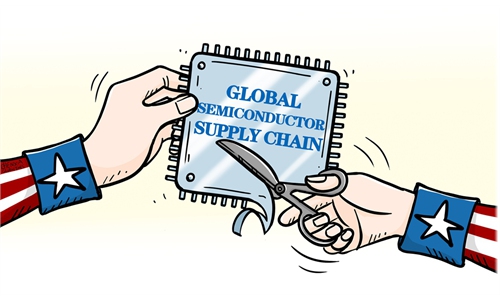
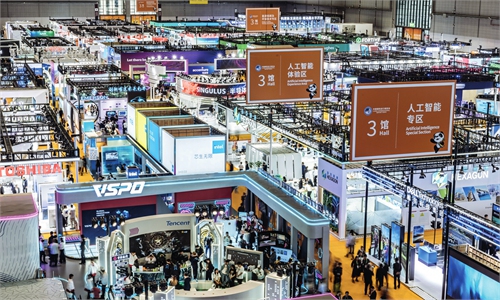
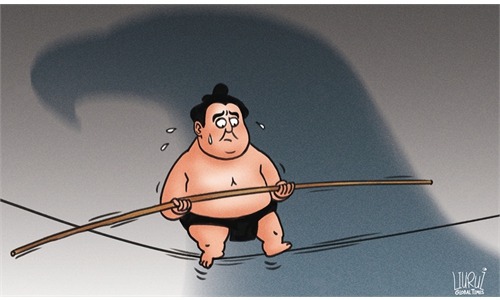
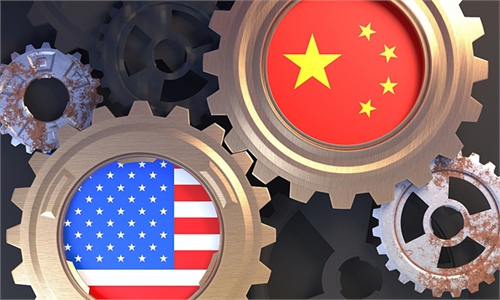
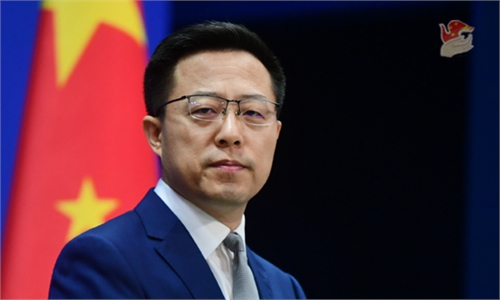
No comments:
Post a Comment
rightwaystosuccess@gmail.com